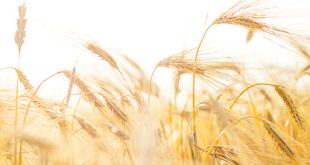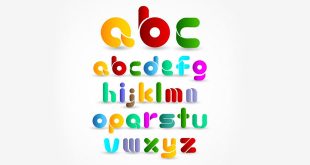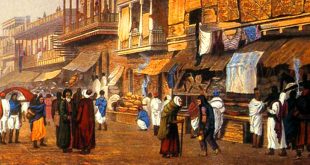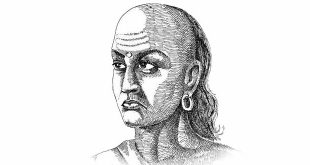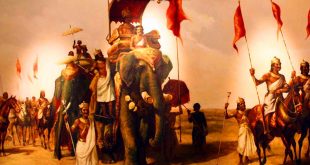Question: Name three natural methods of adding nutrients to soil. Answer: The three natural methods of adding nutrients to soil are: Field fallow, Crop rotation and Mixed cropping. Question: What are weeds? Answer: The unwanted plants that grow along with the crops and share nutrients are called weeds. Weeds decrease the crop …
Read More »Search Results for: friend
NCERT 6th Class (CBSE) Social Science: What is Government?
Question: Name some institutions that are part of the government. Answer: The Supreme Court, the Indian Railways, Bharat Petroleum. Question: List any two functions of the government. Answer: The government protects the boundaries of the country. It maintains peaceful relations with other countries. Question: What happens when someone commits a crime? …
Read More »Gandhi Jayanti Speech For Students And Children
Gandhi Jayanti Speech We have provided below variety of speech on Gandhi Jayanti for the students under various words limit according to their class standard. All the Gandhi Jayanti speech are written using very easy words and small sentences for the students. Dear students, you can select any of the …
Read More »Climax Examples: Climax for Students and Children
Climax! Hang on, it’s not the kind of climax you would see in a cinema, where the hero beats up a platoon of toughies to rescue the love of his life. In fact, climax here represent a figure of speech, where words, phrases or sentences are placed in an ascending …
Read More »Figures of Speech
A person can only be a good writer or a good speaker when he or she is familiar with the figures of speech. A certain level of familiarity with the figures of speech can actually help a person get to the level of an expert, the kind of whiz who …
Read More »Types Of Sentences: For Students and Children
The beauty of sentences lies in clarity, the choice of words and how effectively the thought flows. If words are pearls then a great sentence can be described as a beautiful pearl necklace. Sentences convey more than meaning; they convey style. Now, when writing sentences, it must be understood that …
Read More »NCERT 7th Class (CBSE) Social Science: The Growth of Regional Cultures
Question: Name two famous works of Persian literature and their authors from Medieval India. Answer: The historian Barani, wrote the Tarikh-i-Firuz Shahi and Abdul Fazl wrote the biography of Akbar Akbarnama and Ain-i-Akbari. Question: What was the language and dialect of the book Padmavat? What was its theme? Answer: Malik …
Read More »NCERT 6th Class (CBSE) Social Science: The First Empire: The Mauryas
Question: Who was Chanakya? Answer: Chanakya (or Kauṭilya) was a wise man who served Chandragupta Maurya. Question: Who lived in the Mauryan cities? Answer: Merchants, officials and crafts persons lived in Mauryan cities. Question: Giue one point of difference between empires and kingdoms. Answer: Empires need more resources than kingdoms …
Read More »NCERT 6th Class (CBSE) Social Science: The Age of Empires and Assemblies
Question: Name a ritual used to recognize someone as a ‘raja’. Answer: ‘Ashvamedha’ was one ritual used to recognize kings. Question: Which category of people was excluded from the rituals? Answer: The ‘shudras’ were excluded from rituals. Question: Name two ‘janapadas’ in North India. Answer: Hastinapura and Atranjikhera Question: How …
Read More »NCERT 6th Class (CBSE) Science: Garbage In, Garbage Out
Question: Distinguish between bio-degradable and non bio-degradable. Answer: Biodegradable waste: Waste that will decay and mix with soil. Microorganisms can convert this waste into simpler from. Peels, meat, leaves are the example. Non biodegradable wast: Waste that will not decay and mix soil. Microorganisms cannot convert this waste into simpler …
Read More » Class Notes NCERT Solutions for CBSE Students
Class Notes NCERT Solutions for CBSE Students
